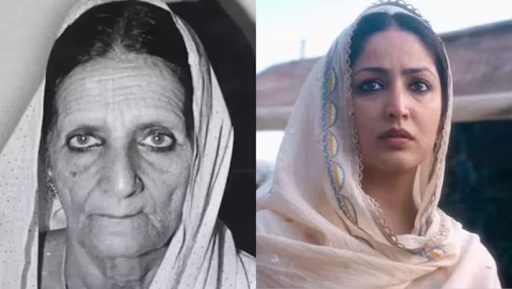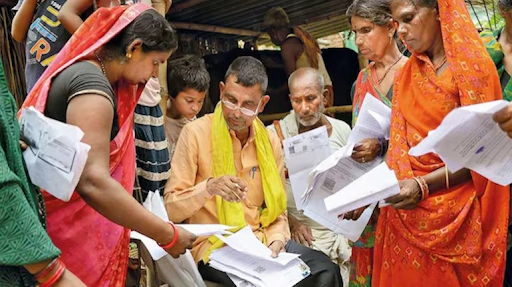



Muslim women’s rights in India face a clash between personal law and constitutional equality. The judiciary advanced reform from the Shah Bano case to the Shayara Bano verdict banning instant triple talaq. Despite the 2019 law, issues in inheritance and polygamy continue amid Uniform Civil Code debates.

Copyright infringement not intended
Picture Courtesy: cnbctv18
An upcoming Bollywood film based on the 1985 Shah Bano case has reignited public debate about Muslim women's rights, the Uniform Civil Code (UCC), and the Judiciary role in balancing personal laws with constitutional principles.
Constitutional Rights
Equality before the law (Article 14) and non-discrimination on the basis of religion, sex, etc. (Article 15).
Protection of life and personal liberty (Article 21), which includes the right to a dignified life.
The State is empowered to make special provisions for the welfare and empowerment of women (Article 15(3)).
Rights related to Marriage
Consent: A Muslim marriage (Nikah) is a civil contract, and a woman's free consent is essential for its validity.
Dower (Mehr): Mehr, the sum of money or property promised by the husband at marriage, is a woman's exclusive property and can be claimed anytime during or after the marriage.
Against Child Marriage: The secular Prohibition of Child Marriage Act, 2006 applies to Muslim women, overriding personal law to prohibit the marriage of underage girls.
Rights related to Divorce
Abolition of Instant Triple Talaq: The Muslim Women (Protection of Rights on Marriage) Act, 2019 declares instant triple talaq (talaq-e-biddat) void and illegal, making its pronouncement a criminal offense.
Wife-Initiated Divorce: Women can seek divorce through Khula (dissolution by the wife, involving a return of Mehr or other consideration) or Mubarat (divorce by mutual consent).
Judicial Divorce: The Dissolution of Muslim Marriages Act, 1939 allows a Muslim wife to get a court-decreed divorce based on grounds like the husband's neglect, cruelty, desertion, or long-term imprisonment.
Rights related to Maintenance
Post-Divorce Maintenance: Divorced Muslim women have a right to "reasonable and fair provision and maintenance" from their ex-husbands, this lasts beyond the iddat period until the woman remarries.
Dual Legal Recourse: A Muslim woman can claim maintenance after divorce under two laws: the Muslim Women (Protection of Rights on Divorce) Act, 1986 or the secular Section 125 of the Code of Criminal Procedure (CrPC), as these options are cumulative.
Child Maintenance and Custody: Divorced mothers can claim maintenance from the father for minor children (until majority, prioritizing welfare) and typically have custody after divorce.
Rights related to Inheritance
Right to Inherit: Under Sharia law, a daughter inherits half the share of a son.
Right over Property: A Muslim woman has absolute control over any inherited or Mehr property, which she can manage and dispose of freely.
Shah Bano Case (1985)
Mohd. Ahmed Khan vs Shah Bano Begum (1985) case highlighted the conflict between Muslim personal law and constitutional rights concerning gender justice and secularism.
Background
In 1978, Shah Bano was divorced by her husband and denied regular maintenance. She filed a plea for maintenance under Section 125 of the CrPC 1973, a secular law that obligates a husband to support his dependent wife.
Supreme Court Verdict (1985)
Legislative Response (1986)
Due to political pressure, the government passed the Muslim Women (Protection of Rights on Divorce) Act, 1986, that limits the husband's maintenance liability to the iddat period.
Daniel Latifi Case (2001)
The Supreme Court, upholding the 1986 Act and the spirit of the Shah Bano verdict, mandated that husband must provide a "reasonable and fair provision" for his wife's future maintenance, to provide lifelong support or until she remarries.
Shayara Bano Case (2017) and the Ban on Triple TalaqThe Supreme Court, in Shayara Bano vs Union of India (2017), declared instant triple talaq unconstitutional by a 3:2 majority, ruling it violated Muslim women's fundamental rights.
Following the verdict, Parliament passed The Muslim Women (Protection of Rights on Marriage) Act, 2019, making instant triple talaq a criminal offense punishable by up to three years' imprisonment and a fine.
Mohd. Abdul Samad vs State of Telangana (2024)
The Supreme Court ruled that the Muslim Women (Protection of Rights on Divorce) Act, 1986, doesn't override the secular maintenance remedy under CrPC Section 125 (now BNSS Section 144).
The Shah Bano case revived the UCC debate (Article 44). A Uniform Civil Code aims to replace diverse religious personal laws with a single secular civil law for all citizens.
Arguments in Favour of UCC
Promotes Gender Justice: Eliminates discriminatory practices like polygamy and unequal inheritance rights found in various personal laws.
Promote National Integration: Creates a common identity by replacing separate legal frameworks with one law for all Indians.
Upholds Secularism: Separates religion from civil law, ensuring equal treatment of all citizens by the state.
Simplifies the Legal System: A single code would make laws easier to understand and apply, reducing legal complexities.
Arguments Against UCC
Threat to Religious Freedom: Seen as a violation of the right to practice religion, guaranteed under Article 25.
Erosion of Minority Identity: Concerned that a UCC might impose the cultural norms of the majority community on minorities.
Practical Difficulties: Implementing a uniform code in a country with cultural and religious diversity is extremely challenging.
Lack of Consensus: Requires broad agreement from all communities, which is currently absent.
Current Status
Reforming Muslim women's rights involves navigating the conflict between constitutional gender equality principles (Articles 14, 15, 21) and Sharia-based personal laws, utilizing secular judicial interventions like Shayara Bano and Shah Bano to enhance rights while addressing religious freedom concerns.
Source: cnbctv18
|
PRACTICE QUESTION Q. Is the Uniform Civil Code debate genuinely about gender justice for Muslim women or a tool for political majoritarianism? Discuss 250 words |
A divorced Muslim woman is entitled to "reasonable and fair provision and maintenance" from her former husband, extending beyond the iddat period. The Supreme Court allows them to claim maintenance under either the Muslim Women (Protection of Rights on Divorce) Act, 1986, or the secular Section 125 of the CrPC, or both.
The UCC is a proposal to replace the personal laws of different religions (e.g., Hindu Marriage Act, Muslim Personal Law Shariat Application Act, Indian Christian Marriages Act) with a single, common set of secular laws applicable to all citizens of India in matters of marriage, divorce, inheritance, adoption, and maintenance.
Goa is the only state in India with a long-standing common family law, the Portuguese Civil Code of 1867, which applies to all residents regardless of religion. Uttarakhand became the first Indian state to enact a modern UCC law in 2024, which became effective in January 2025.



© 2026 iasgyan. All right reserved